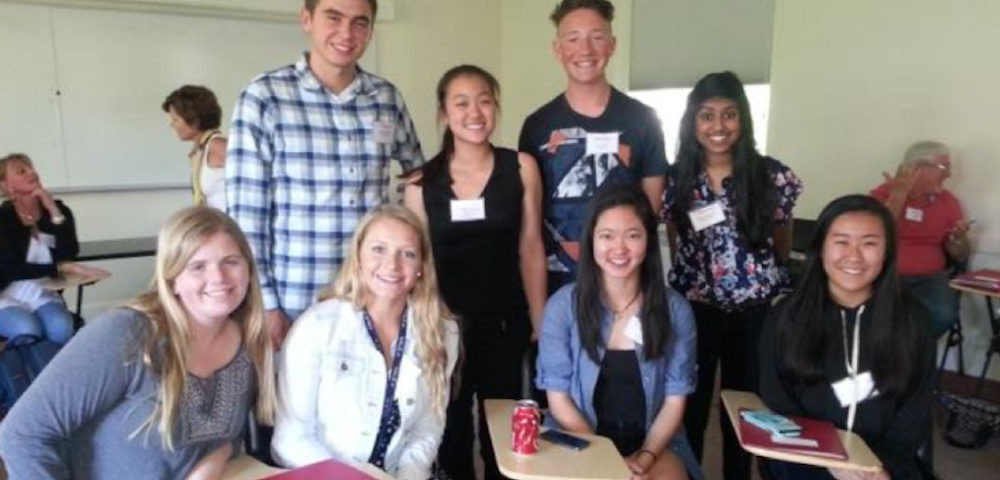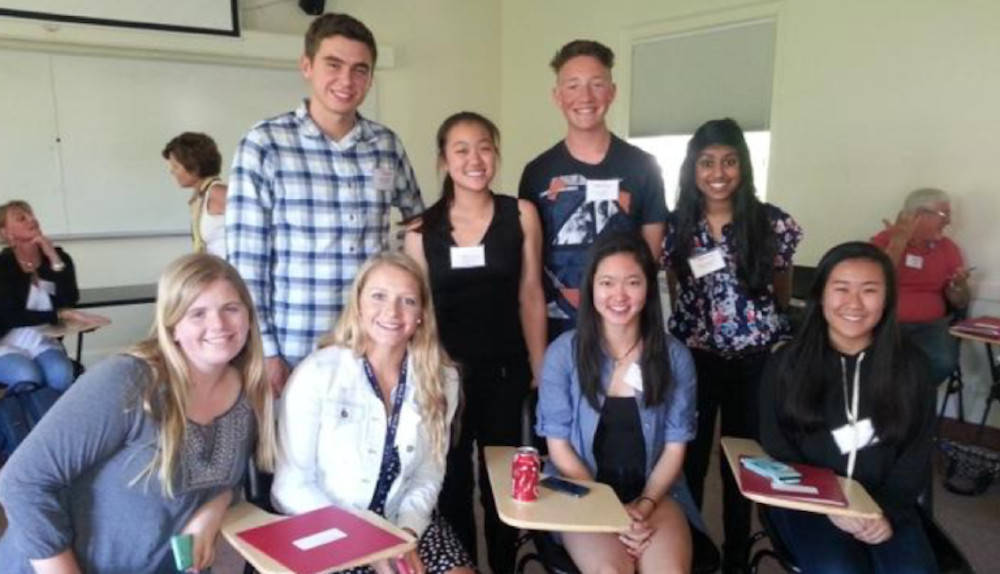Already a member? Log in to the Member Site at members.mastery.org.

MTC Fall Update
October 1, 2018
Member Voices: THINK Global School’s Journey to Mastery
October 22, 2018Challenge Success Urges Schools to Embrace a Broader Definition of Success


Students participating in a Challenge Success conference.
Denise Pope, co-founder of Challenge Success, is a member of MTC’s Advisory Council. Below she reports on new research that “has revealed several areas that schools, students, and families can address in order to help students become more engaged learners.” Challenge Success “supports the work of the Mastery Transcript Consortium to promote an alternative transcript and rubrics that truly reflect student mastery and help to reduce student stress and overload without reducing rigor,” she writes, subsequently offering several possible strategies for priming a school community for a switch to a new transcript. Read on for more!
“People don’t go to school to learn. They go to get good grades, which brings them to college, which brings them the high paying job, which brings them to happiness, or so they think.” —Kevin R., Grade 10, Doing School
Kevin R., Grade 10, Doing School
Since 2007, Challenge Success has surveyed more than 140,000 middle and high school students in high-performing public and independent schools across the country. We have found that many students, like Kevin quoted above, have a narrow definition of success as defined by grades, test scores, and college admission. This often leads to “doing school” rather than focusing on mastery and engagement with learning, and for many students, this pressure to overachieve can result in high levels of physical and emotional distress and exhaustion.
Our mission at Challenge Success, a nonprofit school reform organization affiliated with the Stanford University Graduate School of Education, is to embrace a broader definition of success and implement research-based strategies that promote student well-being and engagement with learning.
What We See in Schools
Our research has revealed several areas that schools, students, and families can address in order to help students become more engaged learners.
Academic Worry and Emotional Distress
Nearly 75 percent of high school students we have surveyed report being often or always stressed by schoolwork. In fact, the National Association of Health Education Centers reports that academics are the leading cause of stress for middle and high school-aged students, and that prolonged stress can be debilitating. The second most common source of stress we hear from high school students is the college admissions process. We have recently released a white paper that specifically addresses this topic (more on this below).
Sleep Deprivation
Our research shows that high school students get, on average, about six and a half hours of sleep each night, even though medical experts recommend eight to ten hours of sleep for healthy development. We know that there is a correlation between sleep deprivation and depression, anxiety, memory function, bullying, and car accidents in adolescents (Stanford Medicine News Center).
Academic Disengagement
Almost 40 percent of high school students we have surveyed report “doing school,” working hard but rarely finding schoolwork interesting, meaningful, or valuable. Our research shows that students who are not fully engaged affectively, behaviorally, and cognitively are less likely to achieve in school and more likely to suffer from symptoms such as depression and anxiety.
Cheating
When students are under pressure and lack sufficient sleep, they often engage in cheating behavior. Challenge Success research shows that 88 percent of high school and 75 percent of middle school kids admit to cheating in one form or another. Students tell us that “it’s cheat or be cheated,” and they feel they have no other options but to break the rules.
How to Break the Cycle: Give Students SPACE
How do we change our schools to emphasize meaningful and joyful learning and a broader definition of success? Challenge Success has used its research-based SPACE framework to guide solution-focused reform efforts with more than 180 schools in our School Program. We look at these five major categories:

When we work with schools, we encourage them to examine their unique needs and then create a site-specific plan for change. Solutions can include strategies from one or more of the SPACE framework categories. For instance, some schools might choose to focus on improving the school schedule to allow more time for transitions, reflection, and deeper learning. Other schools may choose to offer professional development so more teachers can incorporate rigorous, interdisciplinary projects and authentic assessment into their curricula.
Spotlight on the “A”: Alternative & Authentic Assessment
Challenge Success supports the work of the Mastery Transcript Consortium to promote an alternative transcript and rubrics that truly reflect student mastery and help to reduce student stress and overload without reducing rigor. Here are some of the changes our school partners have implemented to create more authentic assessments for students. Schools may want to experiment with some of these strategies as a way to prime their community for a switch to a new transcript:
- Use multiple forms of assessment that are aligned with learning goals in each unit.
- Diversify teaching strategies to include rigorous project/problem-based learning as part of each unit.
- Consider eliminating mid-terms and/or final exams.
- Allow students to self-assess and engage in peer review and revision when possible.
- Revise late work and “zero” policies.
- Allow students to do test corrections to show they understand their mistakes.
- Modify the grading system, such as using narrative assessments, creating unweighted GPAs, and eliminating student rankings.
- Refrain from grading the first assignment(s) each semester; write comments, mark incorrect answers, and allow for revisions, so that students focus on the learning instead of just the grade.
Deep Dive into College Admissions
For many years, we have seen that the “elephant in the room” for high schools, students, and families is the stress and anxiety surrounding the college admissions process. Many students become consumed with the idea of attending a “selective” college, and school administrators are often hesitant to change their practices and policies because they worry that these changes may affect student test scores and college admissions.
Challenge Success conducted an extensive literature review to understand more about what college ranking systems really measure and if students who attend more selective colleges are better off later in life. Our findings suggest that many of the metrics used in traditional college rankings are weighted arbitrarily and are not an accurate indicator of a college’s quality. We also found that positive future outcomes are not necessarily tied to attending a highly selective school. On the contrary, a student’s engagement in college demonstrated by activities such as working on a multi-semester project, finding a mentor, or being active in campus and community activities may be a more significant indicator of future success. What students do in college matters more than where they go. We encourage educators, parents, and students to read our full white paper and to consider broadening their gaze to a wide variety of colleges that might offer a better “fit” and a more engaging experience.
This new white paper along with other resources and services provided by Challenge Success can be helpful to schools to get buy-in from all stakeholders — educators, administrators, parents, and students — about the value of new school policies to support shifts in areas like assessment or students’ use of time to promote student well-being and engagement. If you’d like to learn more about our work, explore our website or contact us!




